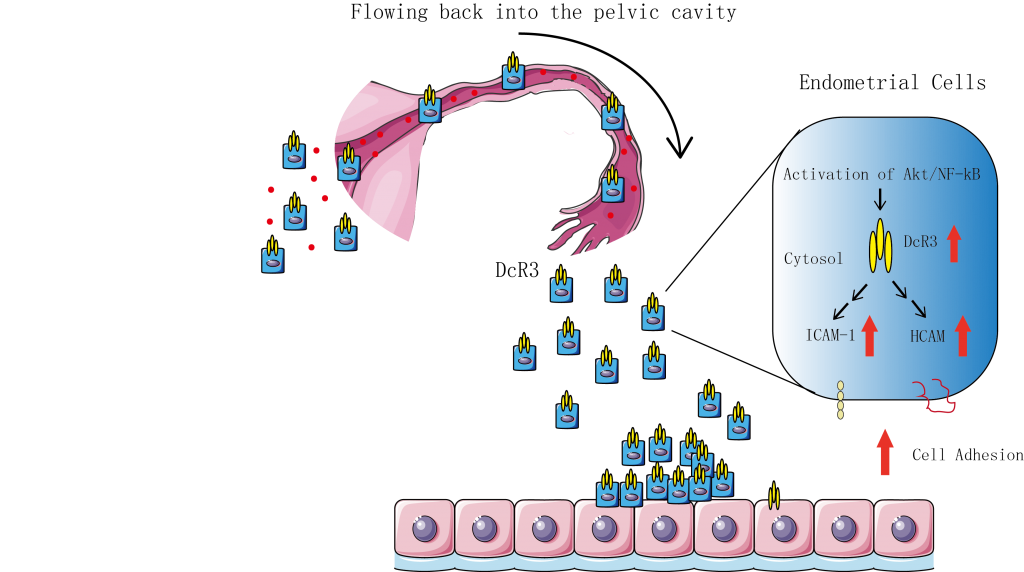Dr. Shi-Liang Hsieh and his team, from Genomics Research Center, Academia Sinica, has done years of work to find answers to inflammations. Recently, his team has confirmed that inflammation-related DcR3 protein is a key factor to enhance adhesion of endometrial cells, which in turn cause endometriosis, offering an opportunity for the treatment of endometriosis without side effects. Their findings were published in the Journal of Pathology on October 23, 2017.
Endometriosis occurs in women of childbearing age and often causes severe menstrual pain. Regard to the symptoms of endometriosis, existing treatments can only inhibit endometriosis with nonsteroidal painkillers, lutein, androgens, gonadotropin-releasing hormone inhibitors or surgery. But the side effects, including menstruation ending, hot flashes, edema, and even infertility, etc., often cause distress.

At present, it is medically believed that the endometrial cells flaking off during the menstrual cycle and flowing back into the pelvic cavity would trigger a series of inflammatory reactions, which is the mechanism of endometriosis. Endometriosis often induces inflammation, causing pelvic adhesions, and in addition to annoying chronic pelvic pain, it will further undermine the ovarian and tubal function, resulting in infertility. Although endometriosis is a benign disease, its cells have similar characteristics of malignant cells – strong adhesion and not easy to apoptosis.
Previously, Shi-Liang Hsieh’s team found that DcR3 dramatically increases the adhesion of mononuclear cells and increases the expression of ICAM-1 through the activation of NF-KB. The research team once again confirmed that DcR3, in addition to promoting cancer cell growth, also causes endometriosis. Especially in the DcR3 gene transgenic mice, endometriosis is abnormally huge. Through the experiment of transgenic mice, researchers found that DcR3 can increase cell adhesion molecules and homing cell adhesion molecule (HCAM), so that the adhesion of endometrial cells greatly increased, prompting the deterioration of endometriosis.
Shi-Liang Hsieh said, “If the genes that cause DcR3 are inhibited, then the adhesion will no longer exist, and the cells will not proliferate. After we thoroughly understand the mechanism, it is expected to find a solution to endometriosis.” After years of perseverance, the team had a better understanding of DcR3 and found that it plays multiple roles in the human body. So far they have already identified the goodness of DcR3 in cases of regenerating damaged spinal cells and in Alzheimer’s disease when DcR3 proved to reduce Amyloid-β. The team also found in clinical data that the DcR3 gene is expressed in the serum and pathological tissues of different cancer patients and increases as the condition progresses.
The study was carried out in collaboration with Dr. Yi-Jen Chen of Taipei Veterans General Hospital and Dr. Hsiao-Wen Tsai of Kaohsiung Veterans General Hospital.